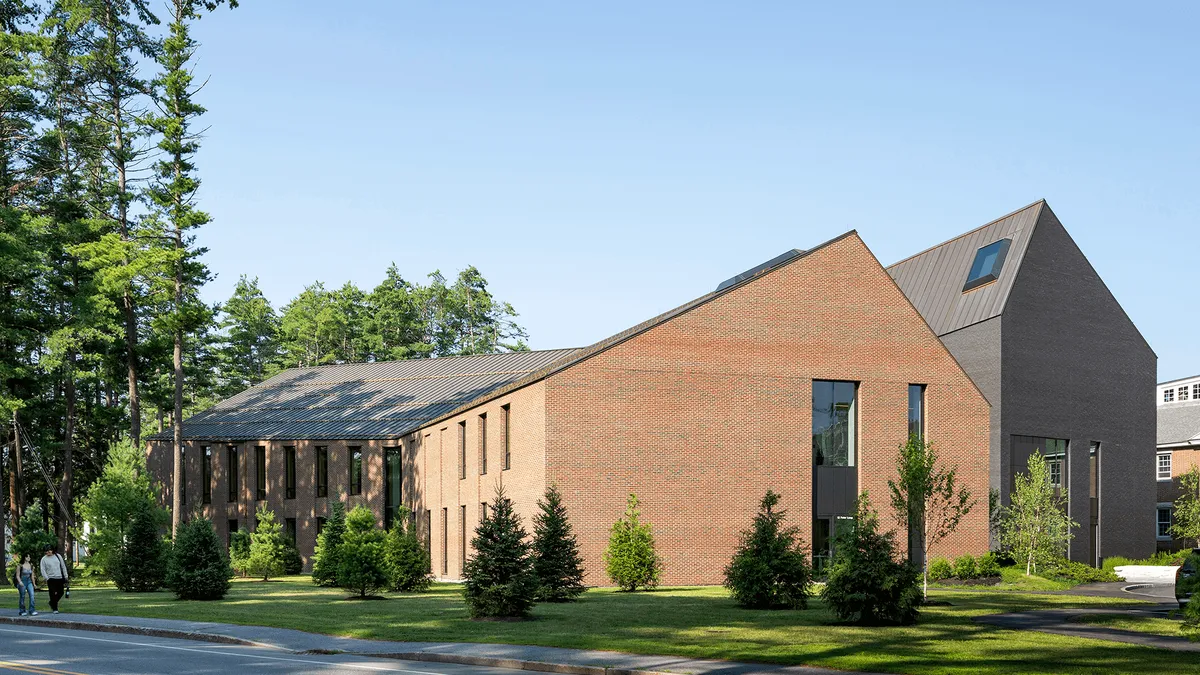Dive Brief:
- Minneapolis-based architect HGA and Milford, Massachusetts-based Consigli Construction Co. announced last week the opening of two of the first commercially scaled mass timber buildings in Maine at Bowdoin College in Brunswick.
- The two buildings, Barry Mills Hall and the John and Lile Gibbons Center for Arctic Studies, are a combined 46,000 square feet of teaching, research and museum space, and cost $37 million in total to build, Doug Cook, the college’s communications director, told Construction Dive. Construction began in 2021, according to the release.
- Stakeholders chose mass timber for its environmental benefits, according to the release. Early in the design process, HGA performed a structural analysis that found a timber frame system would reduce the buildings’ embodied carbon footprint by approximately 75% compared to a traditional steel structure.
Dive Insight:
The two-story Mills Hall features a 60-seat cinema, four classrooms, 12 faculty offices, huddle spaces for student cooperation and a vaulted event space that can fit 300 people, per the release. The Gibbons Center encompasses a large lobby, two flexible museum galleries, collections storage and support, as well as offices, classrooms and an archeology lab.
The landscape design takes inspiration from the tundra and ice flows of the Arctic, per the release. The team used excess soil from excavation to form mounds of earth, which they sculpted to look like snow drifts, while turning discarded marble blocks, salvaged from a regional quarry, into outdoor seating. A grove of white pines surround the area, which the team preserved and bolstered with 80 new plantings to replace those lost during construction, per the release.
The use of mass timber is on par for Bowdoin’s emphasis on environmentally sustainable efforts and buildings.
The college achieved carbon neutrality in 2018, two years ahead of schedule as part of its participation in the American College and University Presidents Climate Commitment. It is also one of 10 institutions to receive funding from the U.S. Forest Service in partnership with the U.S. Endowment for Forestry and Communities, a nonprofit that works in tandem with public and private industry to aid the health of forests and forest-reliant communities, per the announcement.
In addition to the sustainable building technique, the new facilities were also decoupled from the campus steam plant. All heating and cooling is provided through 100% all-electric mechanical systems tied to Bowdoin’s nearby solar PV array, per the release.













